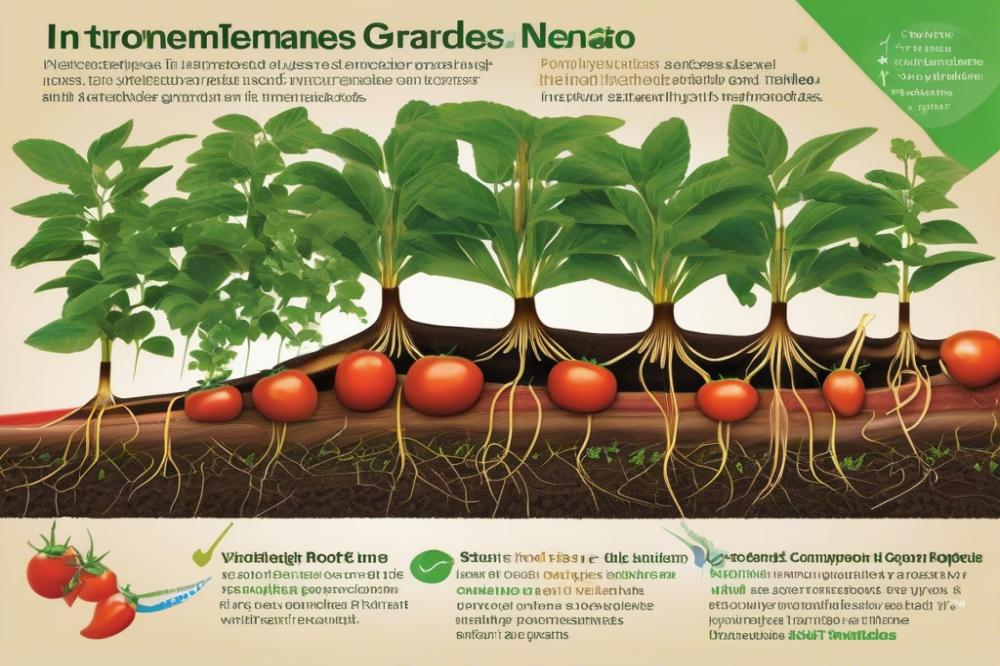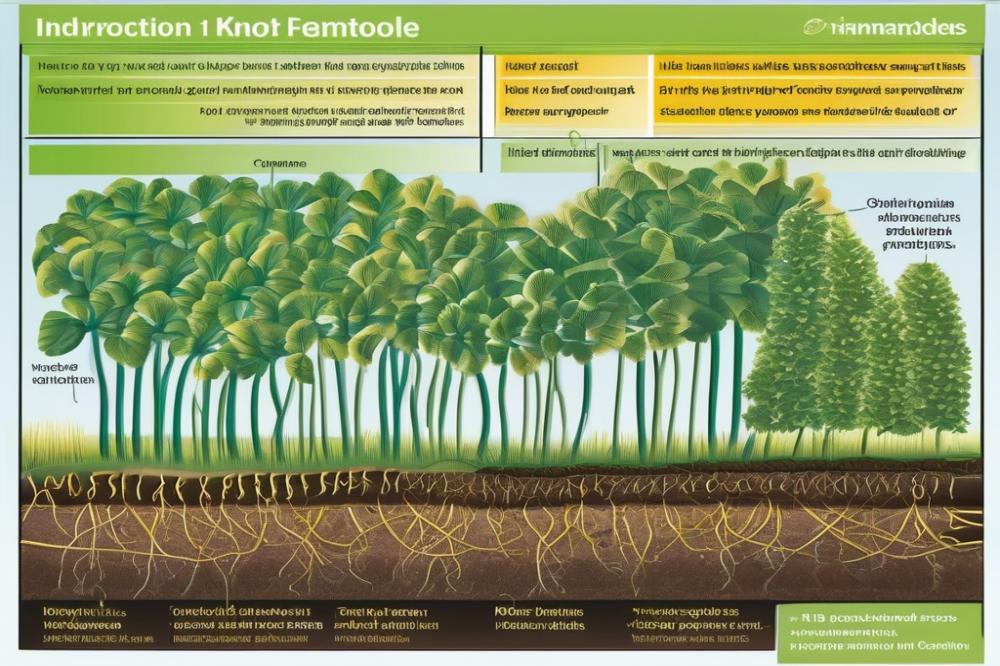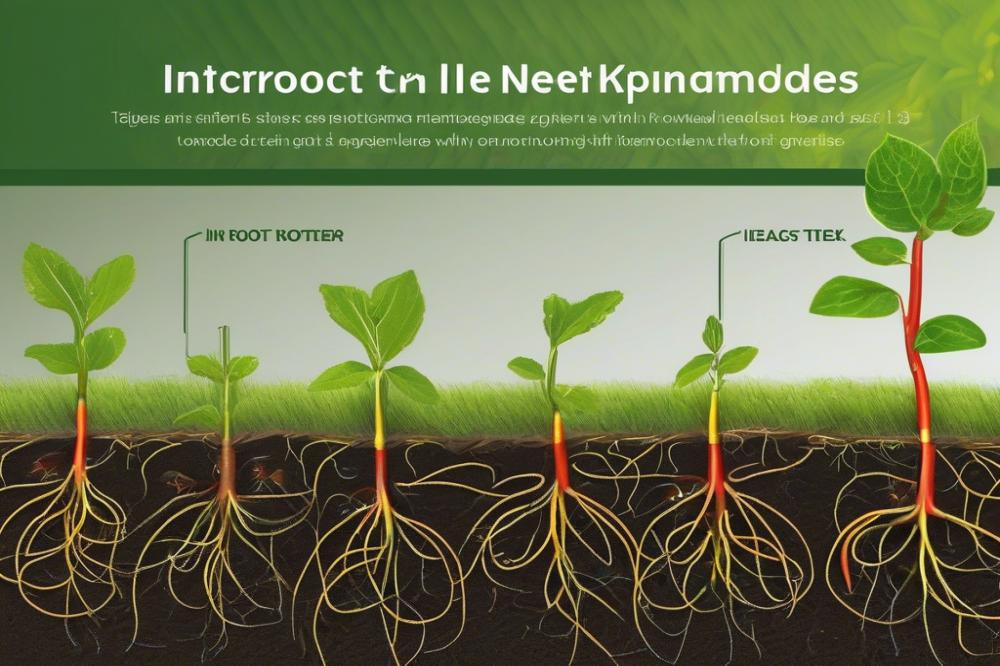Introduction
Root-Knot Nematodes are microscopic worms that can wreak havoc on plants. These pests invade roots and lead to significant damage. They play a key role in the decline of both plant health and soil health. When plants are infected, their ability to absorb nutrients is severely compromised. This can result in stunted growth and reduced crop yield.
The impact of these nematodes goes beyond individual plants. Entire fields can suffer, leading to economic losses for farmers and gardeners alike. Healthy soil is vital for sustainable agriculture, and the presence of nematodes disrupts this balance. Effective nematode management is, therefore, essential for anyone looking to maintain a thriving garden or farm.
In addition to focusing on pest control, utilizing resistant plants can be an effective tactic. Many varieties have been developed to withstand these nematodes. Gardening tips often emphasize the importance of choosing the right plants to prevent infestations. Organic treatment options are also available, promoting a healthier environment for both plants and the soil.
Understanding the nematode life cycle is crucial in tackling this issue effectively. Recognizing when and how these pests reproduce can guide preventative measures. Nematode Prevention is not just a reactive approach; it requires proactive strategies. Addressing this pest will help ensure a better outcome for our gardens and farms. Whether you are a home gardener or a commercial grower, knowledge about Root-Knot Nematodes can make a significant difference.
Understanding Root-Knot Nematodes


Root-knot nematodes are microscopic roundworms that cause significant damage in gardens and fields. These pests can create galls or swellings on the roots of plants. Often, these galls interfere with water and nutrient uptake, leading to stunted growth. Affected plants may present symptoms like yellowing leaves, wilting, or a decline in overall health. Farmers and homeowners alike face challenges when these pests invade their soil.
Nematode Life Cycle and Reproduction
The nematode life cycle consists of several stages. It begins with eggs, which hatch into larvae. After this, they progress through several juvenile stages before becoming adults. Reproduction often occurs quickly, with females able to lay hundreds of eggs. This rapid growth can overwhelm plants in a short amount of time. These pests thrive in warm and moist conditions, making management even more crucial during certain seasons.
Common Plants Affected by Root-Knot Nematodes
Most garden favorites are vulnerable to root-knot nematodes. Common vegetables such as tomatoes, carrots, and potatoes frequently face infestation. Ornamental plants and fruit trees are also at risk. When these pests invade, the potential for reduced crop yield increases. Recognizing symptoms early can be vital for effective pest control. Implementing nematode management strategies helps maintain plant health and ensures soil health remains intact.
Many gardeners are turning to resistant plants as a way to combat these pests. Organic treatment options offer eco-friendly solutions, promoting sustainable agriculture. Application of soil solarization can also disrupt the nematode life cycle, ultimately reducing populations. Gardening tips often include crop rotation, which can help lessen the chances of re-infestation. Staying informed plays a key role in maintaining robust plant growth.
Impact on Plant Health and Crop Yield


How root-knot nematodes damage plant roots
Root-knot nematodes are tiny worms that can wreak havoc on plants. They invade the root systems, causing swellings or galls. This physical damage disrupts the plant’s ability to absorb water and nutrients. Roots play a crucial role in overall health, and when they are compromised, plants struggle to survive. By damaging the root structure, these pests can also create openings for harmful pathogens to enter. Plants become more susceptible to diseases, which can further diminish their vitality.
Effects on plant health and growth
When roots are damaged, the impact on plant health can be immediate and severe. Leaves may yellow, and growth can stall. Without proper root function, plants simply cannot thrive. Nutrient deficiencies arise because roots cannot take up necessary elements. This is often seen in gardens where nematodes are prevalent. Many gardeners notice stunted growth and wilting plants. The overall vigor of plants declines, leading to a less resilient garden ecosystem.
Consequences for crop yield and sustainable agriculture
Crop yield declines when plants suffer from nematode infestations. Farmers face significant challenges in maintaining productivity. Infected crops yield lower amounts, making it hard to meet market demands. The economic implications can be devastating for those relying on agriculture for their livelihood. Sustainable agriculture also suffers when pest problems become overwhelming. Farmers are forced to resort to harsh chemicals for pest control, which can harm soil health.
Strategies for nematode management are critical for maintaining healthy ecosystems. Utilizing resistant plants offers an organic treatment option, which minimizes chemical use. Effective gardening tips that focus on soil health can help prevent infestations. Crop rotation can disrupt the nematode life cycle, keeping their population in check. Every step taken to combat these pests contributes to a more sustainable agricultural practice. Maintaining healthy soil and plant health is essential for future generations.
Nematode Management Strategies


Effective pest control measures are vital for gardeners and farmers alike. Understanding the nematode life cycle helps in planning appropriate interventions. Recognizing when these pests are most active can lead to better management practices. Many methods exist to keep nematode populations at a manageable level. Integrating different strategies often yields the best results.
Importance of Soil Health in Managing Nematodes
Soil health plays a pivotal role in maintaining plant vitality. Healthy soil can naturally suppress nematode populations. Regular testing can identify nutrient deficiencies affecting soil balance. The right balance of organic matter encourages beneficial microbes that combat harmful pests. Gardeners should focus on enriching soil rather than relying solely on chemical treatments.
Gardening Tips for Prevention and Control
Preventative measures can help maintain a strong garden. Crop rotation is one effective technique. This practice disrupts the life cycle of nematodes and reduces their populations. Planting cover crops can also enhance soil structure and promote beneficial insects. Keeping garden tools clean reduces the chance of spreading pests between plants.
Organic Treatment Options and Resistant Plants
Organic treatments are increasingly popular among those seeking sustainable agriculture. Certain natural solutions, like neem oil or cultural practices, can help control nematodes. These options minimize chemical use, supporting overall plant health. Moreover, planting resistant plants can significantly reduce the threat of pest damage. Many options are available today that thrive in various environments.
Implementing Sustainable Practices


Promoting Soil Health through Sustainable Practices
Soil health is crucial for effective pest control. Healthy soil supports robust plant growth. It enhances the ability of crops to resist pests, including harmful nematodes. Maintaining soil quality involves using fewer harmful chemicals. Instead, focus on organic treatments to enrich the soil. Composting not only adds nutrients but also improves soil structure. By promoting beneficial microorganisms, farmers can create a balanced ecosystem underground. This helps plants thrive and boosts crop yield over time.
Crop Rotation and Its Impact on Nematodes
Crop rotation plays a significant role in nematode management. Changing the types of plants grown in a particular area disrupts the nematode life cycle. Each plant family has different root systems and nutrient needs. This variance can reduce nematode populations naturally. For example, incorporating legumes can improve soil nitrogen and help suppress pests. Farmers should rotate crops regularly to maximize these benefits. Doing so not only protects plants but also promotes overall soil health.
Using Cover Crops and Organic Amendments
Cover crops are another effective strategy for safeguarding against pests. Planting these crops in the off-season prevents erosion and enriches the soil. Certain cover crops can suppress nematodes directly. They create a habitat for beneficial organisms that compete with harmful pests. Adding organic amendments, like aged manure or green manure, boosts soil quality even more. These practices enhance water retention and nutrient availability. Additionally, using resistant plants can be an effective gardening tip. Selecting varieties that tolerate nematodes can lead to healthier plants and improved outcomes.
Final Thoughts
Summary of the impact of root-knot nematodes
Root-knot nematodes pose a significant threat to both gardens and farms. These pests invade plant roots, causing stunted growth and reduced yields. The damage often remains hidden until it’s too late, leading to decreased crop profits and struggling gardens. Affected plants may show signs of wilting, yellowing leaves, or even die completely. This has wider implications for overall plant health and soil health, creating challenges for sustainable agriculture.
Reinforcement of prevention and management strategies
To combat these nematodes, employing effective prevention strategies is essential. Crop rotation can disrupt life cycles while planting resistant varieties enhances resilience. Incorporating organic matter into the soil boosts its vitality. Regular soil testing helps identify infestations early. Monitoring for symptoms can save time and effort. Each of these practices plays a critical role in managing these pests effectively. Strong, healthy plants are the best defense against this common menace.
Call to action for gardeners and agriculturalists to take proactive measures
Gardeners and farmers must take proactive steps to protect their crops. Knowledge about these pests should empower everyone to act promptly. Educating oneself and others can make a substantial difference. Simple strategies, when implemented, can significantly improve outcomes. Prioritize healthy plants and good soil practices to mitigate risks. Collective action leads to better results for all. Protect your garden and crops with diligence—your hard work deserves it.



